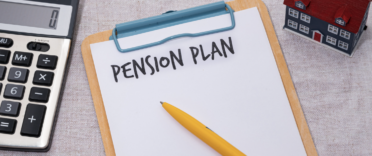
A pension is basically a tax-free pot of money that you or your employer can pay into as a way of saving for your retirement. Once you have reached the age of 55 you can start drawing money from your pension or purchase an annuity from an insurance company to provide an income for life.
Any contributions into your pension pot are effectively 'topped up' as the income tax originally paid on these contributions is returned yo you either directly to your pension pot or partly via your tax return. This makes saving into a pension a very cost effective way of building up a sum of money for your retirement.
How much tax relief will I get on my pension contributions?
I suggest that you download this excellent easy-to-read guide to pension tax relief. It tells you exactly how the tax relief on pension contributions works, how much you can put in and details of some important changes in the pipeline.
How pension tax relief works & important changes coming soon
An excellent easy-to-follow guide that tells you all you need to know about how pension tax relief works. It includes a summary of how much tax relief you will get, how much you can contribute as well as upcoming rules changes.
Download your free guideThe general rules on pension tax relief are:
- If you pay into an employer's pension scheme then your contributions will be deducted from your salary before the tax is calculated so you will get full tax relief on your contributions
- If you pay into a personal or stakeholder pension then you will pay your contributions net of basic rate income tax and your pension provider will claim the tax relief back from HMRC. A net contribution of £80 per month will be increased to £100 per month when the tax relief is reclaimed by the pension provider
- If you are a higher rate tax payer then the first 20% of tax relief is claimed back as explained above but the additional 20% (higher rate taxpayer) or 25% (top-rate taxpayer) must be claimed back through your annual tax return
- If you do not pay tax you can still claim 20% tax relief on gross contributions up to a maximum of £3,600
- Tax relief is only available on contributions not exceeding your annual earnings, there are additional limits for higher earners with large pension pots
Are pensions taxable?
- The first 25% of your pension pot can be taken free of income tax
- Any further withdrawals regular or lump sum will be taxed as income, the amount paid will depend on your total income and the tax rate that applies
- Although you are able to withdraw part or all of your pension pot as cash, this amount will be added to your overall income for the relevant tax year which may result in paying a higher rate of tax
Are pensions guaranteed?
- If you are a member of a defined benefit/final salary occupational pension scheme then any retirement income will be calculated based on your salary at retirement and length of service, this pension will be guaranteed
- If you have a personal or stakeholder pension then there no such guarantees and your pension will depend on the size of your pension pot at retirement, however, if you decide to purchase an annuity then the payments in retirement will be guaranteed for life
Where should I invest my pension pot?
- If you are a member of a defined benefit/final salary occupational pension scheme then there will be no investment decisions to be made as the scheme guarantees to pay your pension as described in the pension scheme terms & conditions
- If you have a personal or stakeholder pension then you will normally have some investment decisions to make. Pension providers will offer a limited range of funds to invest in and will normally provide guidance depending on your attitude to risk
- If you have a Self Invested Personal Pension then your investment choices are much broader. SIPPs are favoured by people who are happy making there own investment decision or take the advice of a professional adviser. Most SIPP owners tend to invest in investment funds as there is a large range available offering varying degrees of risk and potential returns If you are thinking about using a SIPP or already have one then read this informative guide to getting the most from your SIPP. It contains some very useful advice.
All you need to know about using a SIPP (Self Invested Personal Pension)
An easy-to-read guide which shows you how to take advantage of a SIPP to boost your pension
Download the free guideAre pensions subject to inheritance tax?
- If the pension owner dies prior to their 75th birthday then any pension fund remaining will be passed free of any inheritance tax
- If the pension owner dies after their 75th birthday then the pension fund will be passed on free of any inheritance tax but the recipient will be taxed, at their marginal rate, on any income or lump sum withdrawn





